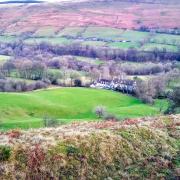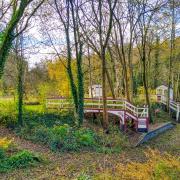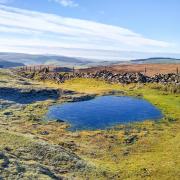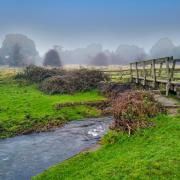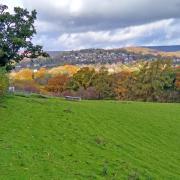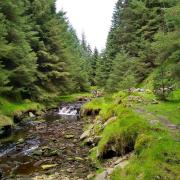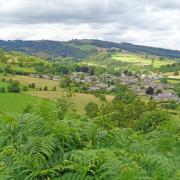As National Parks such as the Peak District become ever more popular, Roly Smith uncovers some worrying statistics
A new survey has found that an astonishing 70 per cent of adults in England and Wales unknowingly break the Countryside Code when they go out walking.
The survey was conducted among 1,800 people by the Rohan outdoor clothing company, who claimed that the Covid pandemic and lockdowns had dramatically shifted the way that many people enjoy the countryside, with visits to our green spaces, such as National Parks, drastically increasing. That was certainly borne out here in the Peak District.
The survey found that the most common way (46 per cent) of people disobey the rules is by walking through an open gate and not closing it behind them.
This was followed by 23 per cent of people admitting to climbing over fences, walls or hedges away from a footpath.
Over a quarter of men said they have climbed over a fence, wall or hedge, compared to just one in five women.
A suspiciously low five per cent of walkers also admit to leaving litter while out in the countryside, while more encouragingly, almost a third of respondents said that they have previously picked up someone else’s waste.
Circumstantial evidence here in the Peak during the Covid lockdowns would seem to refute both of those findings.
Sam Durham, chief land management adviser with the National Farmers Union (NFU), explains: ‘Generally a gate is closed or open for a reason, and it has been left that way by the farmer. It may be left open to give livestock access to food and water, or because they are working in the field and require regular access.’
As for climbing over walls and fences, a particular problem here in the Peak, Sam says: ‘Field boundaries such as these aren’t designed to be climbed over and you will likely cause damage if you do. Fences are often topped with barbed wire and hedges include prickly species such as hawthorn, so you may also hurt yourself if you climb over them.
‘Drystone walls are iconic parts of many landscapes such as the Peak District, and it is a special skill to be able to build these without using mortar. It can be easy to dislodge a stone if you climb over the wall, and this can lead to the whole wall collapsing.’
Sam adds: ‘It is always good practice to leave nothing but footprints, so everything will be there for the next visitor to enjoy. Practically, rocks could be part of historic ruins, stones could protect insect habitats and flowers could be important for insect pollinators.’
The survey found that the vast majority of people were going against the Countryside Code quite innocently, without knowing what it was.
Just one in eight (12 per cent) adults said they know exactly what was included in the Code, and almost half (48 per cent) had no knowledge at all or weren’t sure.
A couple of years ago, the Peak District National Park Authority with the National Trust and other interested agencies made an attempt to refresh the Countryside Code and came up with its ‘Peak District Proud’ campaign with associated signage.
The creation of the Countryside Code in the 1950s was a Government-backed initiative. Maybe this new survey is a sign that much more needs to be done nationally to if we are to change the attitudes of some visitors.




